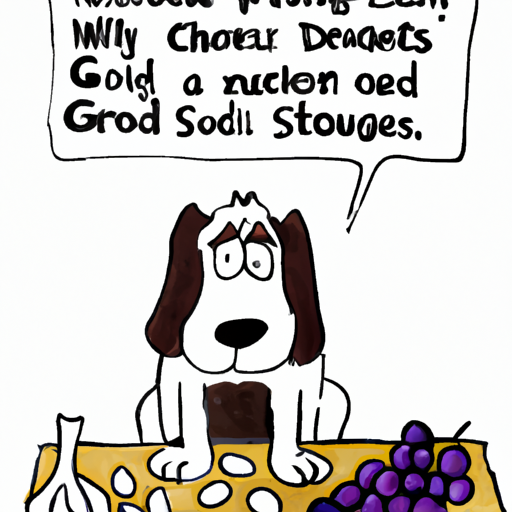As a caregiver, one of your main priorities is ensuring the health and safety of your loved ones, and that includes your canine companions. You may often find yourself wondering, “What shouldn’t dogs eat?” This article provides an in-depth look at foods that are harmful to dogs and why, so you can make the best dietary choices for your pet.
- Table of Contents
- Understanding Dog Nutrition
- Dangerous Foods for Dogs
- Why These Foods Are Harmful
- Signs of Food Poisoning in Dogs
- What to Do If Your Dog Eats Something Harmful
-
FAQs
-
Key Takeaways
- Dogs have different dietary needs than humans.
- Certain human foods are harmful, and even deadly, for dogs.
- Symptoms of food poisoning in dogs include vomiting, diarrhea, and lethargy.
- If you suspect your dog has ingested something harmful, contact your vet immediately.
Understanding Dog Nutrition
First, it’s important to understand that dogs have different nutritional requirements than humans. They need a diet high in protein, with the right balance of carbohydrates, fats, vitamins, and minerals. Some foods that we eat regularly can cause serious harm to dogs. To learn more about the basics of dog nutrition, check out this helpful guide.
Dangerous Foods for Dogs
Below is a list of foods that are harmful to dogs. This is not an exhaustive list, but it covers some of the most common foods that dogs may encounter.
- Alcohol
- Caffeine (coffee, tea)
- Chocolate
- Grapes and Raisins
- Onions and Garlic
- Xylitol (a sweetener found in many products, including gum and candy)
- Macadamia Nuts
- Avocados
To keep your dog safe, it’s crucial to be aware of these dangerous foods and ensure they are kept out of your dog’s reach. For more tips on pet safety, you can visit here.
Why These Foods Are Harmful
| Food | Why It’s Harmful |
|---|---|
| Alcohol | Causes vomiting, diarrhea, coordination problems, breathing problems, coma, and even death. |
| Caffeine | Can be fatal. Symptoms include restlessness, rapid breathing, heart palpitations, muscle tremors, and seizures. |
| Chocolate | Contains theobromine, which is toxic to dogs and can cause vomiting, diarrhea, heart problems, tremors, seizures, and death. |
| Grapes and Raisins | Can cause kidney failure. Even a small amount can make a dog ill. |
| Onions and Garlic | Can cause anemia by killing a dog’s red blood cells. |
| Xylitol | Can cause insulin release, which can lead to liver failure. Symptoms include vomiting, loss of coordination, and seizures. |
| Macadamia Nuts | Can cause weakness, tremors, and hyperthermia. |
| Avocados | Contain persin, which can cause vomiting and diarrhea. |
Signs of Food Poisoning in Dogs
If your dog has ingested a harmful food, they may show symptoms such as vomiting, diarrhea, lack of appetite, lethargy, and uncoordinated movements. If you notice any of these signs, it’s important to get your dog to a vet as soon as possible. For more information on recognizing the signs of illness in dogs, visit this link.
What to Do If Your Dog Eats Something Harmful
If you suspect your dog has eaten something they shouldn’t have, contact your vet immediately. Provide as much information as possible, including what they ate, how much they consumed, and any symptoms they’re showing. Do not try to induce vomiting unless directed by a professional. For more information, you can refer to this article.
FAQs
1. My dog ate a small piece of chocolate. Will he be okay?
– It depends on the size of your dog and the type of chocolate. Dark chocolate and baking chocolate are particularly harmful. It’s best to call your vet for advice.
2. Are there any fruits or vegetables that are bad for dogs?
– Yes, certain fruits and vegetables like grapes, raisins, onions, garlic, and avocados can be harmful to dogs.
3. What should I do if I can’t reach my vet and my dog has eaten something harmful?
– If you can’t reach your vet, you can call the ASPCA Animal Poison Control Center at (888) 426-4435.
Remember, as a caregiver, your dog’s health and safety are in your hands. By understanding what foods are harmful to dogs and why, you can ensure your furry friend lives a long, happy, and healthy life.



